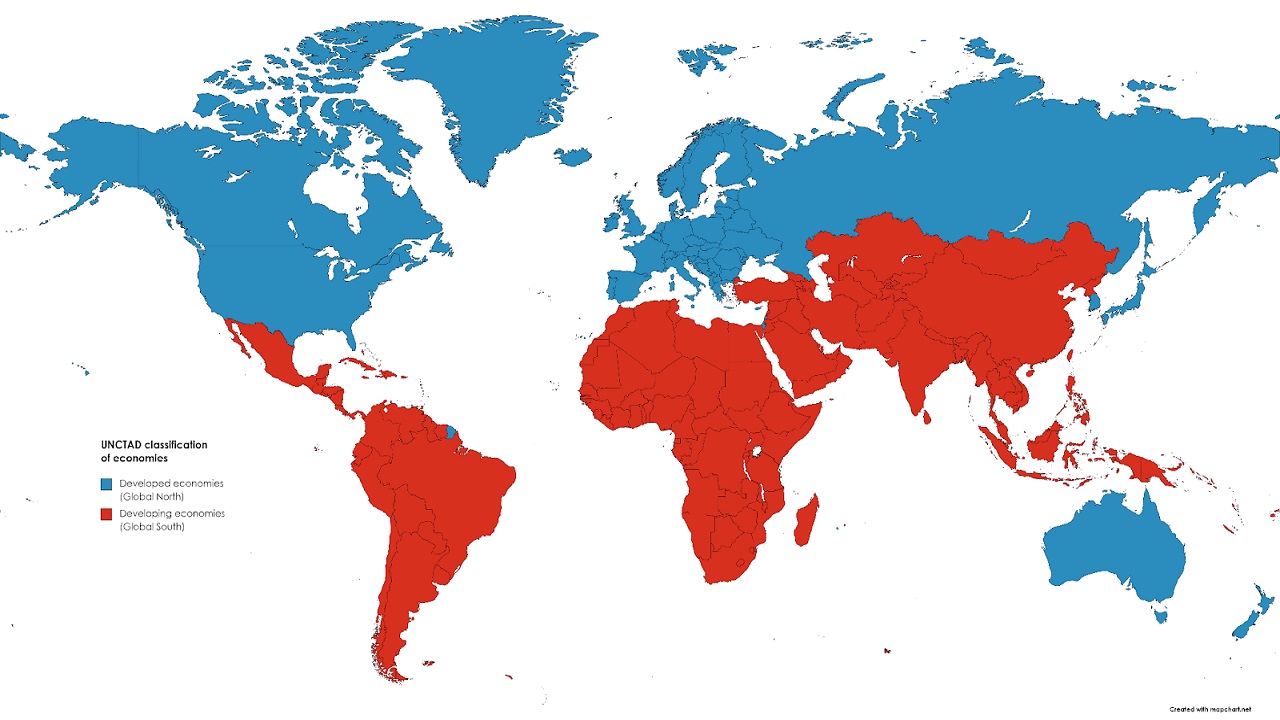India's Strategic Outreach to the Global South: A BRICS-Driven Diplomacy
Context:
Prime Minister Narendra Modi’s visit to Brazil from July 2–9, 2025, marked his longest overseas tour in 11 years. In addition to attending the BRICS Summit in Rio de Janeiro, he visited Ghana, Trinidad & Tobago, Argentina, and Namibia.
This tour highlights India’s increasing diplomatic and developmental engagement with the Global South, aiming to project itself as a leader and voice for the developing world.
India as a Leader of the Global South
India has actively worked to build its identity as a representative of the Global South, focusing on inclusive development, multilateral cooperation, and South-South solidarity.
Key Initiatives:
-
Hosting Voice of Global South Summits
-
Held in 2023 and 2024, bringing together over 120 developing countries.
-
Themes included: climate change, debt distress, energy and food security, and digital inequality.
-
-
G20 Presidency 2023
-
Advocated for inclusive growth, debt relief, and African representation.
-
Secured permanent G20 membership for the African Union, marking a significant diplomatic success.
-
-
Development Partnerships
-
India expanded capacity-building programs, training initiatives, and development aid across Africa, Latin America, and Southeast Asia.
-
-
Alternative to China's BRI
-
India presents a transparent, sustainable development model as a counter to China’s debt-driven Belt and Road Initiative (BRI).
-
-
Historical and Moral Positioning
-
Draws from its Non-Aligned Movement (NAM) legacy and anti-colonial past to foster solidarity with the Global South.
-
What is the Global South?
-
The Global South refers to developing countries, primarily in Asia, Africa, Latin America, and Oceania, often with colonial legacies and lower economic development.
-
It stands in contrast to the Global North, comprising wealthier, industrialized nations.
-
Not a geographical term, it signifies a collective identity among countries that advocate:
-
Climate justice
-
Fair trade
-
Technology transfer
-
Multipolar world order
-
India actively represents the Global South in platforms like BRICS, G77, and the Voice of Global South Summit.
Gaza Conflict and Strained Ties with the Global South
Background:
After the October 7, 2023 Hamas-Israel conflict, India adopted a pro-Israel stance, which generated concern among several Global South countries.
Diplomatic Fallout:
-
India lost to Pakistan in the UNESCO Executive Board Vice-Chair election, indicating diplomatic backlash.
-
There was lower high-level participation from developing countries in India’s Second Voice of Global South Summit.
-
Several Global South nations perceived India as aligning with Western powers and not opposing Israeli actions in Gaza.
India’s Diplomatic Recalibration on Gaza and Iran
To address growing dissatisfaction, India adjusted its stance at key multilateral platforms:
Course Correction:
-
At the June 2024 BRICS Foreign Ministers' Meeting and the July 2025 BRICS Summit, India strongly criticised Israeli actions in Gaza.
-
Also condemned Israeli strikes on Iran, balancing ties between West Asia and the Global South.
Strategic Implication:
While Israel remains a key defence partner, India’s public statements reflect an effort to regain trust and retain its moral leadership in the Global South.
BRICS 2025 Summit: India’s Gains and Trade-offs
India made key diplomatic achievements at the Rio BRICS Summit 2025, even as it navigated sensitive issues.
Key Outcomes:
-
Terrorism
-
BRICS, including China, condemned the Pahalgam terror attack and backed India on cross-border terrorism and terror financing.
-
-
Operation Sindoor Concerns
-
After launching Operation Sindoor in Pakistan, India faced skepticism.
-
To counter this, India dispatched multi-party delegations to explain its position and garner support.
-
-
Declaration Trade-offs
-
India secured tough language on terrorism but had to accommodate references to Gaza and Iran in the final declaration to maintain consensus.
-




Comments (0)